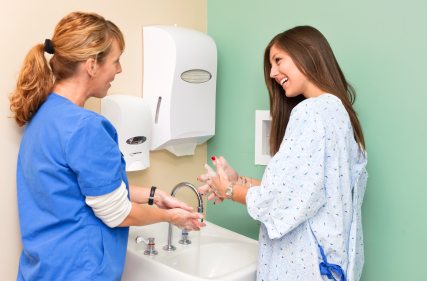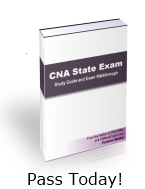|
|
Hand WashingHand washing is the simplest and most effective way of preventing the spread of germs and communicable diseases. When done properly and on a regular basis, it can help us maintain a healthy life and reduce the chances of contracting diseases and common infections that can be passed on through skin contact. Here are a few situations when we should take the initiative to wash our hands: · When you are able to see dirt on the skin surface, it is definitely important to wash your hands. · Before and after changing a diaper, going to the washroom or assisting someone else in the washroom. · You should wash your hands before and after the preparation of food. · If you are providing care to someone who is ill, or has a lower immune system due to illness or disease it is important to maintain good hand hygiene. · To prevent the spread of germs it is good to wash your hands after wiping or blowing your nose. · Always wash your hands after petting or caring for family pets. · Before eating food or feeding someone else. · After contact with garbage or garbage bins. · After coming in contact with bodily fluids, such as vomit or saliva. There are several methods and techniques for hand washing. The best method is to remove rings and jewellery , properly wet hands first with warm water, apply an adequate amount of hand soap preferably liquid, Rub hands vigorously together for 20 seconds until the soap is lathered and distributed over your wrists, hands, between fingers and over fingernails. This allows the soap to lift dirt and oils off the skin. Rinse thoroughly with warm water. Dry your hands with a fresh paper towel and turn off faucet with paper towel to avoid contact with germs that may be present on the faucet. Avoid touching any surfaces as you leave the washroom.
For the times you may not have soap and water available, there are several alcohol based hand sanitizers available on the market that have proven to be effective in killing 99% of germs that can be found on surfaces we come in contact with on a daily basis. It is a good idea to carry one of these with you in case you need to wash your hands on the run. However, there are instances where these products will not be as effective, such as when your hands are visibly dirty, or when you have come in direct contact with blood or other organic materials. Good hand hygiene and effective hand washing methods will assist in preventing the spread of the common cold or flu, H1N1 flu and other more serious diseases such as meningitis, hepatitis A, Bronchiolitis, and most types of infectious diarrhea. These illnesses can be spread through a casual touch of human skin, or by coming in contact with an infected surface and then rubbing your eyes, mouth or nose and allowing it to gain entry into your body. The simple act of hand washing can protect you from many things, which is why it is so important to educate yourself and make a habit of washing your hands sever times a day. A few minutes a day can save your life. |


